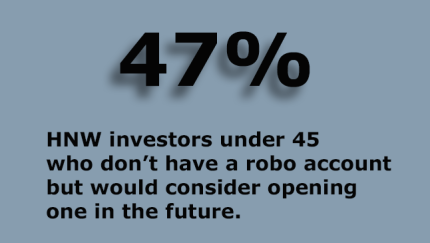(Bloomberg) -- TIAA, the nearly 100-year-old retirement and insurance company, is launching a robo adviser it built internally, the latest entry into the digital advice field.
The new offering will offer passive index and ETFs and active funds, the firm stated on Tuesday. It will also include a strategy that invests with socially responsible criteria.
TIAA’s robo adviser requires a minimum account balance of $5,000 and charges an annual advisory fee of 0.3%, according to the statement.

“It’s a natural next step in our journey to support the financial well-being of many more people,” said Kathie Andrade, head of TIAA’s retail financial services business.
CEO Roger Ferguson, a former Federal Reserve vice chairman, has been trying to expand the customer base of TIAA, which is known for offering retirement products to teachers, and making acquisitions to reach more retail investors.
Blockbuster industry deals and unforeseen shifts in client attitudes are altering future forecasts for digital advice.
Last year, he agreed to a $2.5 billion deal to acquire EverBank Financial, primarily an online bank. And he bought MyVest, a San Francisco-based technology firm that specializes in wealth management and assisting broker-dealers and banks, which the firm said helped accelerate the launch of the new robo-adviser.
A TIAA spokeswoman noted the platform was built by TIAA's in-house digital team and "it leverages underlying managed account and rebalancing technology from MyVest."
-
"We're not going to proscribe any way for clients to access us," says Mark Jordahl, president of U.S. Bank's wealth management group.
May 31 -
Executives think algorithmic assistants will be a better solution for wealthy clients than mere software allocating assets for the masses.
May 31 -
The robo advice firm says it already has a number of customers with more than $10 million each.
May 24
The new offering will include funds from TIAA as well as other firms, such as BlackRock’s iShares and USAA Investment Management.
Much of the growth in the industry is now grabbed by traditional giants in money management including mutual fund firms Vanguard and Charles Schwab. Robo-advisers in U.S. ended last year with $83 billion in assets, according to an estimate from Cerulli Associates, a Boston-based consulting firm.
“When you think about the divergence that’s occurring between digital delivery and people delivery, I don’t think we know exactly what that convergence is going to be. What we do know is that there is a huge need for in-person or people to deliver advice for those that have more complex needs,” Andrade concluded.






